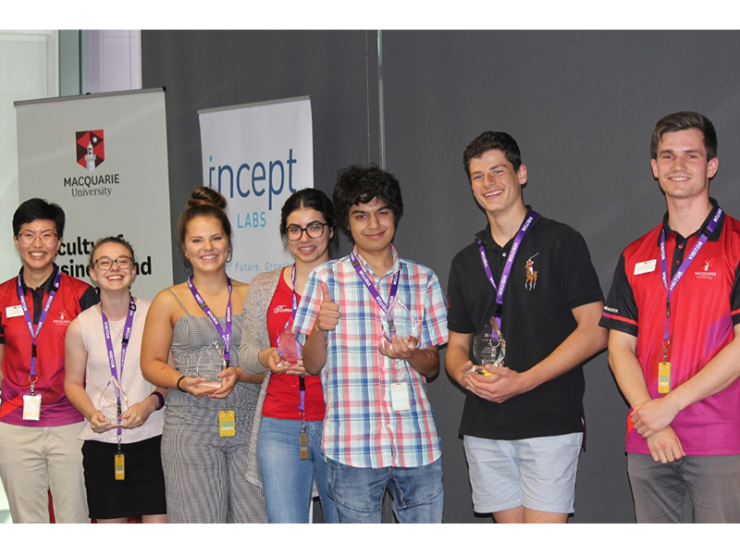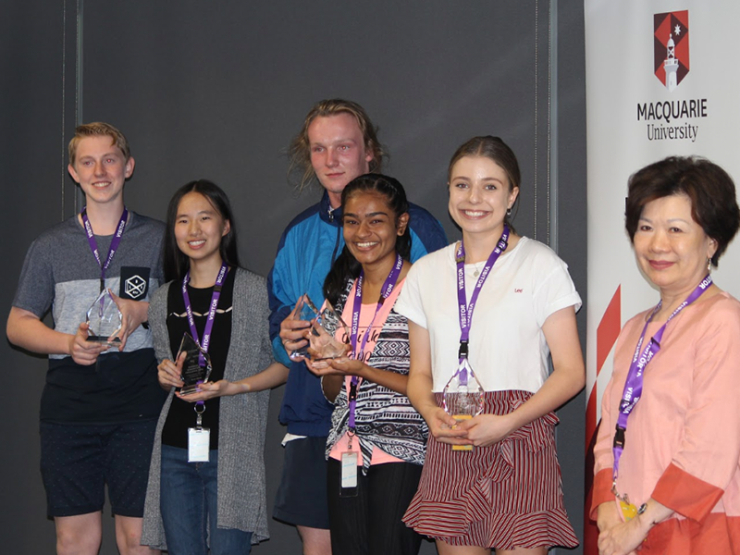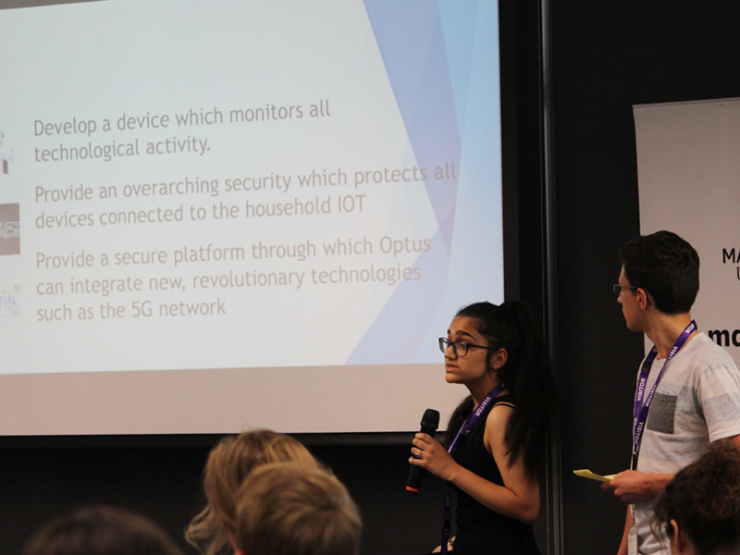Case Study:
Optus
Unlike traditional learning environments, the Business Innovation Challenge (BIC) aims to give students genuine, real world problems with an industry partner, where their work actually makes a difference. This approach is fundamental to giving young people the skills they need in the future.
In November 2018, Incept Labs partnered with Optus for one of the more exciting BIC sessions we’ve held. Students were hosted on-site at Optus’ Macquarie Park campus, and presented with a broad problem to solve.
▸ What was the problem?
With the coming age of 5G mobile networks, the Internet of Things (IoT) will change the very fabric of our society, both in how we work and how we communicate. With that comes some serious concerns about IoT security.
The students were challenged to consider the potential impacts of a denial of service and ransomware type attacks on a ‘connected’ home, the new risks to people and assets this involves and identify innovative approaches that Telecommunications companies and insurance firms could adopt to support their customers to reduce their cyber risk. Optus’ Matthew Connolly was one of Optus’ BIC facilitators, and says it was an intentionally broad issue.
“The challenge statement, in a nutshell, was: What role do telco and insurance companies play in protecting consumers from risks such as IoT security?
“It was a very broad challenge, which was the point. It was good we had a general audience in the student base though, because we got very different responses from each group.”
▸ One problem, two angles
Unlike a ‘standard’ BIC (if it exists) Optus added complexity by incorporating a strategic customer into the project, IAG insurance. The students were asked to view the problem through two lenses, Insurance and Telecommunications, with the intent of incubating ideas that would assist Optus and IAG working closer together to solve for a very complex market problem.
Matt says it made the challenge much more engaging.
“I think the different angle added a known complexity, but the result was much better. It was more focused and brought more support to the table. We had four cyber security subject matter experts working with the students, two from Optus Cyber Security division and two from IAG’s security education and awareness team.
“Like most BICs it was over two days. The morning of the first day Stuart Mort, our CTO Cyber & ICT Solutions, did a presentation to introduce the concept of the Internet of Things, it’s existing security vulnerabilities with industry examples, and Optus' inherent role in that challenge. Then IAG did the same.”
From an educational point of view, an additional perspective is invaluable. It asked students to develop a solution from a range of inputs and look at the problem from multiple angles, increasing their engagement in the process.
▸ Developing real solutions
One of the benefits of the Business Innovation Challenge is it asks students to work on real world problems without a known answer, and IoT security is a perfect case study of that. Matthew says the challenge presented was not just a problem our companies are grappling with, this is a grand challenge within the entire industry.
“I wouldn't say either Optus or IAG is further along in what we need to understand - we really landed on IoT security because it’s an evolving challenge that leading technology and insurance companies are researching and solving for today”
“It’s a big, hairy problem with no silver bullet. That's why I think it was a great challenge, because they could come up with things we haven't thought about, because we haven't solved this problem.”
Students may be young, but they know when they’re being asked to engage in artificial hoop jumping. By posing a new problem where their solutions actually matter, students are more engaged than they ever could be in a traditional classroom. Matt says hosting students on-site was especially useful in helping them see the real world applications of their work.
“Part of the day was seeing our security operation center, hearing from experts that work on these problems, and putting students in that environment. I think exposing kids to future careers in that immersive way was great - a lot of the teachers said they’d never been able to do that.
“That was part of the experience, giving them access to what the industry actually looked like. It's a bit of a black box otherwise.
“They see cybersecurity through movies and the media, but what the industry does, the jobs that are created, and the problems they need to solve in the future, they've probably never seen that before.”




